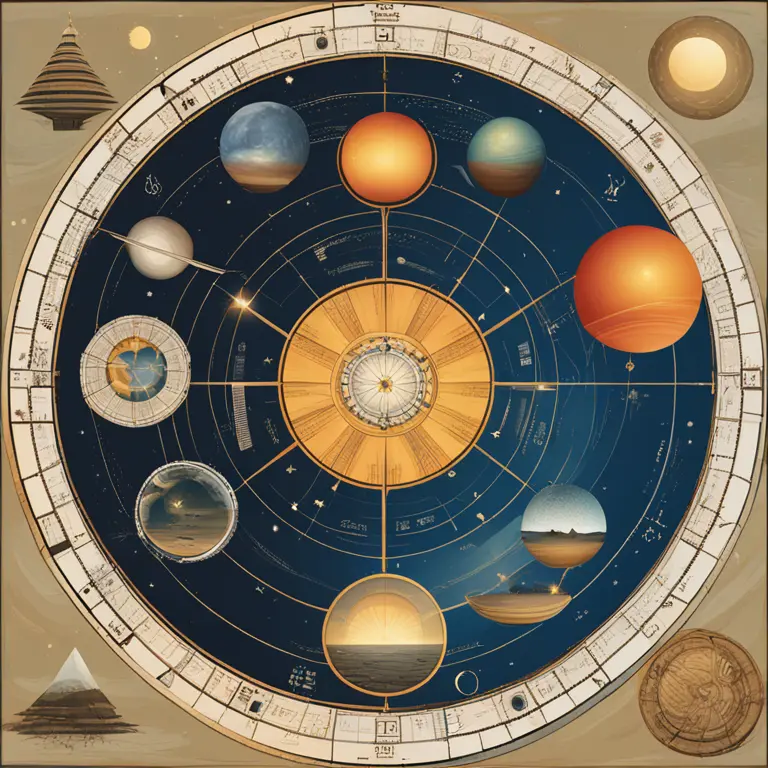
The Basis of Astrological Houses in Chart Interpretation
Discover the fundamental principles behind the determination of astrological houses and their significance in personal horoscopes.
article by Priya Deshmukh
Introduction to Astrological Houses
Astrology provides a celestial snapshot of the sky at the moment of your birth, known as a natal chart. Within this cosmic framework, astrological houses play a critical role, acting as the stage where the planets' energies unfold and influence various aspects of our lives. The planetary placements within these twelve sectors reveal unique insights about one's personality, potential, and path. Calculating these houses is essential for accurate chart interpretation and requires precise birth data, including date, time, and location.

Setting the Stage: The Ascendant
The calculation of astrological houses begins with the Ascendant, the sign rising on the eastern horizon at the time of birth. This crucial point determines the cusp of the 1st house and sets the wheel for the remaining houses. As the earth rotates, a new sign rises approximately every two hours, making birth time a critical factor for house determination. The Ascendant sign provides clues to one's approach to life, self-awareness, and physical appearance.

House Systems: A Variety of Choices
Astrologers utilize various house systems to divide the sky, such as Placidus, Koch, Whole Sign, and Equal House, each with its own method of calculation. The Placidus system, the most common, factors in the earth's curvature and time taken for a sign to ascend. Differences in latitude will affect house sizes in this system, making some larger and others smaller. The choice of the house system may alter the distribution of planets across the houses, yet the underlying significance of the houses remains constant.

Nature of the Twelve Houses
Every house in an astrological chart governs distinct life areas. The 1st house relates to self-image, the 2nd to values and possessions, and so on through to the 12th house, associated with the subconscious and the hidden realm. By 2024, transiting planets will occupy new positions in these houses, shedding light on upcoming experiences and shifts in various facets of life. For instance, a planet transiting through the 7th house may indicate a period focused on partnerships.

Transits and Predictive Astrology
Forecasting in astrology involves tracking transiting planets as they move through the houses of one's natal chart. These movements can trigger events, stir emotions, and prompt changes. For example, Jupiter's transit through one's 4th house in the year 2024 may suggest a time of expansion and blessings in family or home life. Astrologers analyze these transits in relation to the natal positions to provide insights into potential future developments.
Birth Charts Beyond 2024
In personalizing astrology beyond 2024, astrologers will look at the slow-moving outer planets (Jupiter through Pluto) as they make their way through different houses, bringing extended periods of transformation and growth. These transits can mark significant milestones in an individual's journey through life, reflecting broader generational shifts that have the power to reshape personal narratives within the context of societal evolution.
Published: 2/13/2024
Modified: 2/14/2024
More predictions
Come back here soon to learn more about yourself and your future


Astrology and the Young Stars: A Kid-Friendly Guide
Delve into a kid-friendly introduction to astrology, unveiling the cosmic influence on our little ones' personalities, strengths, and potential paths.


The Zodiac Chronicles: Your Astrology Primer
Embark on a cosmic journey through the basics of astrology. Discover how celestial alignments can offer insights into personality, life events, and relationships.


Astrological Insights for the Modern Era
Discover how astrology can provide guidance in our fast-paced world with timely insights for personal growth and understanding.